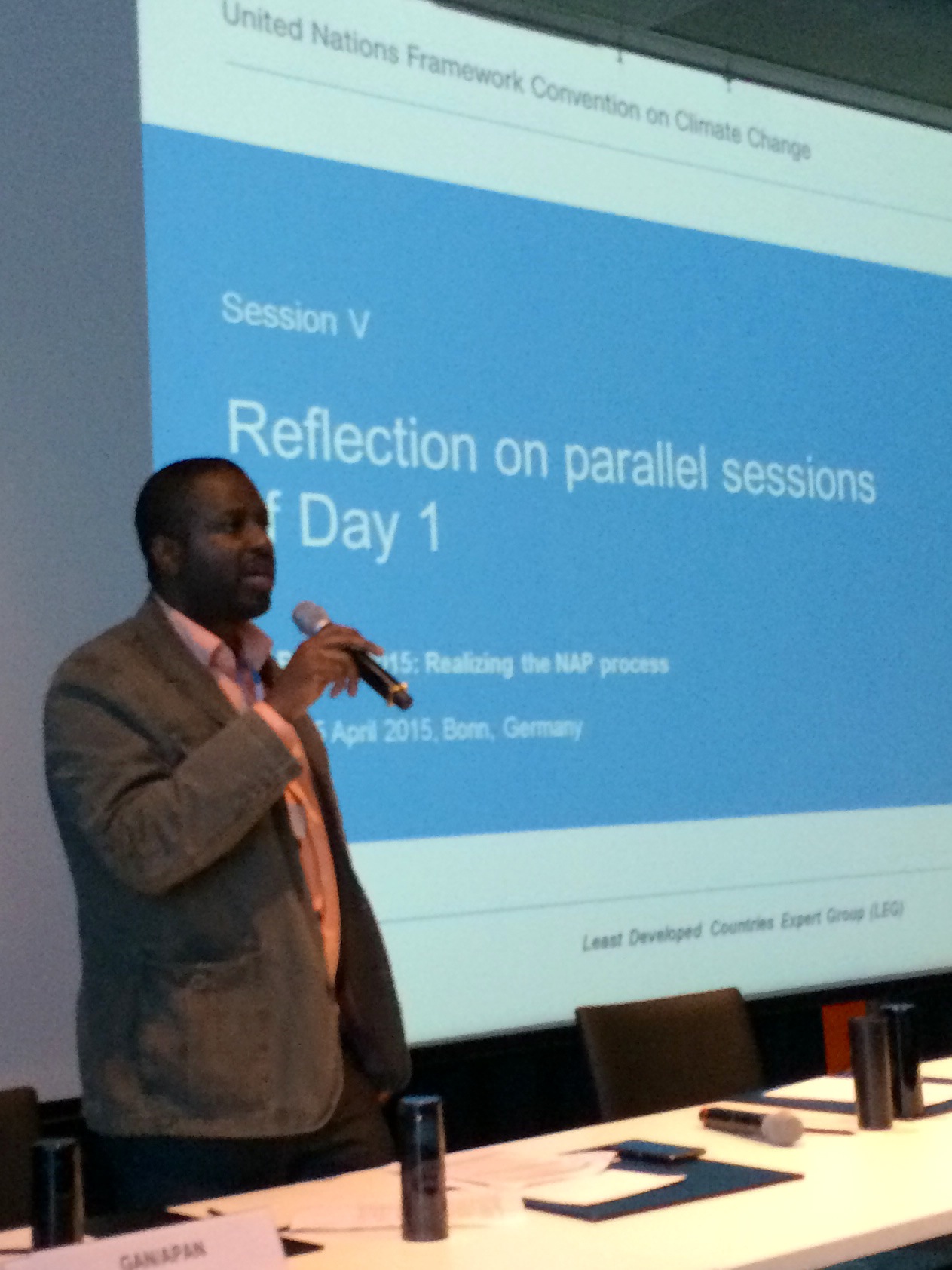


Moderators of yesterday’s parallel sessions presented reflections to the plenary first thing this morning.

The session on data and information requirements for adaptation led by UNESCO yielded three key messages: that national data planners still face data gaps and a lack of access and availability to data; that scenarios should be developed for user groups (e.g., different sectors for health, user sectors for local fisheries and different ecosystems); there are key data and knowledge gaps, for example, integrating ecosystem-based approaches; and how a global framework for climate services can deliver adaptation options can be further explored.
The representative from FAO summed up discussions on the Agriculture sector in the process to formulate and implement NAPs, presented by FAO and WFP. Key concerns revolved around the agriculture-food security-water nexus. How to transition from analysing and assessing to moving towards implementation was another concern, with one observation being that it was crucial for everyone working on NAPs to identify and understand triggers that made things move. A concern in terms of current medium and longer-term adaptation in terms of climate modelling and sufficient data was the need for an adequate level of information that forms the baseline for adaptation (that is, to adapt against what? To adapt in terms of what?), including how to ensure more comprehensive and accurate baselines for informed decision-making.
GIZ’s representative reported back on discussions under the topic of Support Monitoring and Evaluation of adaptation at the national level. Participants addressed questions on M&E of the NAP process and M&E of adaptation. The key messages that emerged were:
A participant from a development bank commented that it was important to ensure that having separate M&E for NAPs did not create the silos that the NAP process itself is meant to avoid, the whole point of them being integration.
Participants at the session Enhancing coordinated bilateral support for undertaking NAPs discussed existing bilateral support for the NAP process and possible role of NAP Global Network in enhancing support. These reflections emerged:
Southern Voices led a session on Civil society expectations on the NAP process, and presented the outcomes of that discussion. The key messages were:
The technical working group on supplements saw six hours of productive and constructive discussions. It was formed to address the question of how to encourage integrated cross-sectoral approaches in the NAPs. They provided an overview of their work.